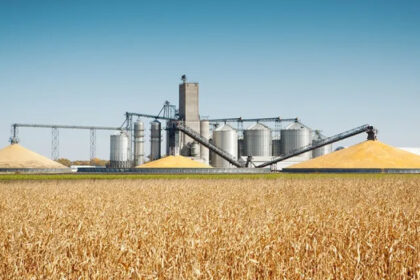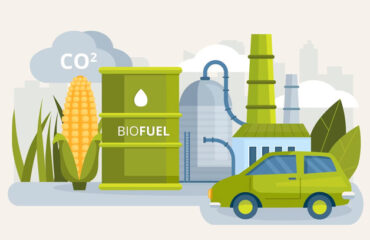
In the quest for sustainable energy solutions, the world is turning to renewable and eco-friendly sources of fuel. In this transition, maize, a common food grain, has emerged as a star player in the production of ethanol, a renewable alcohol-based fuel. This blog explores the pivotal role of maize in ethanol production, focusing on its superior energy content and the environmental benefits it brings.
Maize: A Remarkable Source of Ethanol: Maize, often known as corn, has been a staple food for centuries. But it’s more than just a dietary delight; it’s a powerhouse of energy. Maize’s natural abundance of starch makes it an ideal candidate for ethanol production. Starch, a polysaccharide found in plants, is the primary component in maize that is converted into ethanol. The transformation process is both efficient and sustainable, contributing to the production of high-quality ethanol. This ethanol boasts superior energy content and environmental benefits, making it a preferred choice for a greener and more sustainable energy future.
Superior Energy Content: One of the standout features of maize-derived ethanol is its energy content. Compared to other sources of biofuels, maize-based ethanol offers higher energy content, which means it packs more power per gallon. This is not only beneficial for fuel efficiency but also for reducing carbon emissions. When utilized as a fuel, it leads to cleaner combustion and fewer harmful emissions.
Environmental Benefits: Maize-based ethanol offers a range of environmental benefits. It is considered a sustainable and eco-friendly option for several reasons:
- Reduced Greenhouse Gas Emissions: The production and use of maize-based ethanol result in lower greenhouse gas emissions compared to fossil fuels. This contributes significantly to efforts to combat climate change.
- Reduced Dependence on Fossil Fuels: The adoption of maize-based ethanol in fuel blends decreases the reliance on traditional fossil fuels, thereby reducing the carbon footprint of the transportation sector.
- Utilization of Local Resources: Maize is a locally available resource in many regions, reducing the need for long-distance transportation and its associated environmental impact.
- Support for Farmers: By creating demand for maize as a biofuel feedstock, it supports farmers and provides them with an additional source of income, contributing to rural economic development.
Conclusion: Maize, the humble food grain, is playing a pivotal role in the production of ethanol, a renewable and eco-friendly fuel. Its superior energy content and the numerous environmental benefits it offers make it a prime choice for a cleaner and greener energy future. As India and the world embrace ethanol production and blending, the significance of maize-based ethanol continues to grow. It reduces dependence on fossil fuels, curbs carbon emissions, and contributes to a greener and more sustainable future. The transition from farm to fuel tank exemplifies the remarkable potential of sustainable agriculture and renewable energy sources.

